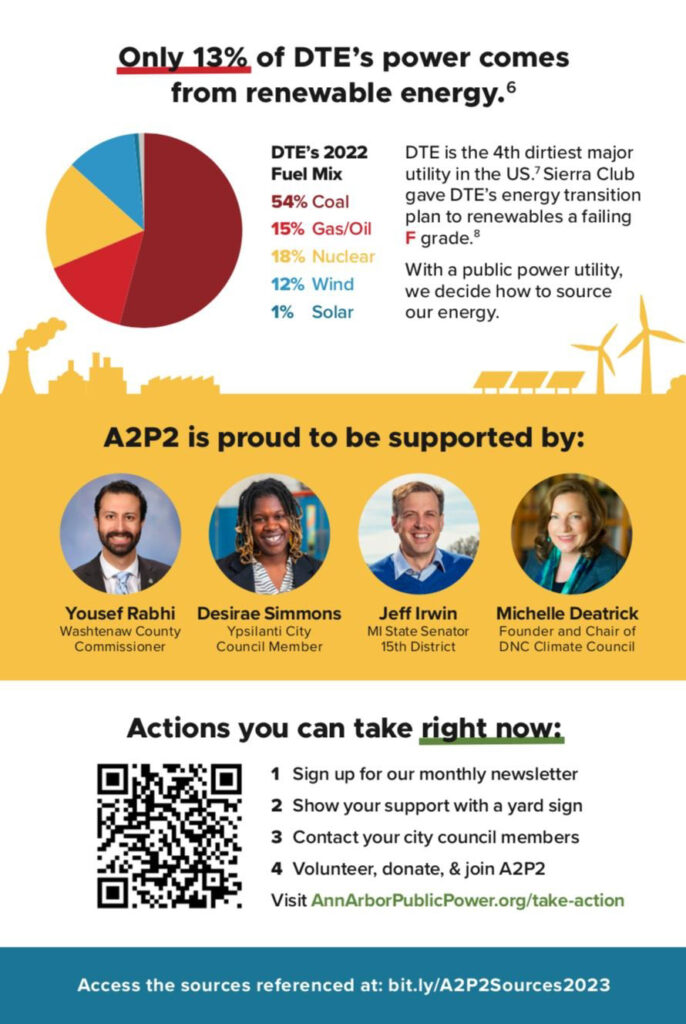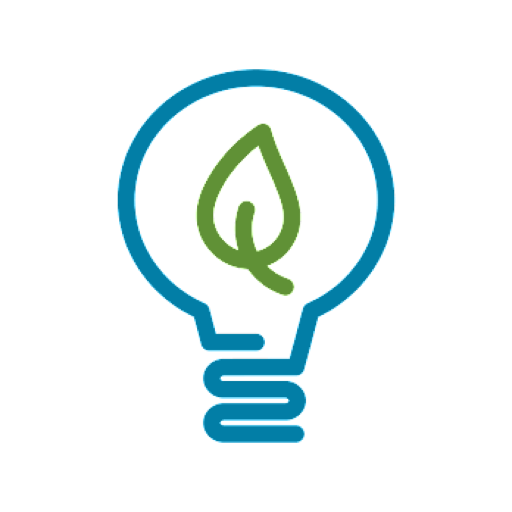Why should Ann Arbor own its electric grid and provide power instead of a corporation like DTE? There are three important reasons:
Renewable
Accelerate our transition to 100% renewable electricty.
Reliable
Reduce outages and make our grid more resilient.
Responsible
Ensure power is available and affordable to everyone in Ann Arbor.
Municipal utilities–owned by the public rather than by corporate shareholders–have been providing reliable electricity to customers across America for decades. Over 2,000 munis serve 49 million customers in the U.S. Michigan’s 41 municipal utilities charge their customers significantly less on average for much better service than what DTE provides.
Benefits of Public Power
Munis often outperform investor-owned utilities (IOUs) because of one essential difference: IOUs serve their shareholders while municipal utilities serve their ratepayer/owners.
Click on each of the benefits listed below to learn more details about why munis are a better choice for customers:



The Washtenaw County Democratic Party supports the goal and campaign of Ann Arbor for Public Power (A2P2) to replace DTE with a full municipal electric utility in Ann Arbor. To read the full resolution, click here.
Want more information?
- See our fact sheet on how Ann Arbor can reach 100% renewable energy by 2030, in line with our A2 Zero goals
- Check out past events on our YouTube channel.
- American Public Power Association homepage
- Democratizing Power: New Citizen Initiatives Challenge Monopoly Electric Utilities — webinar from the Institute for Local Self-Reliance
Author and activist Bill McKibben on Public Power

